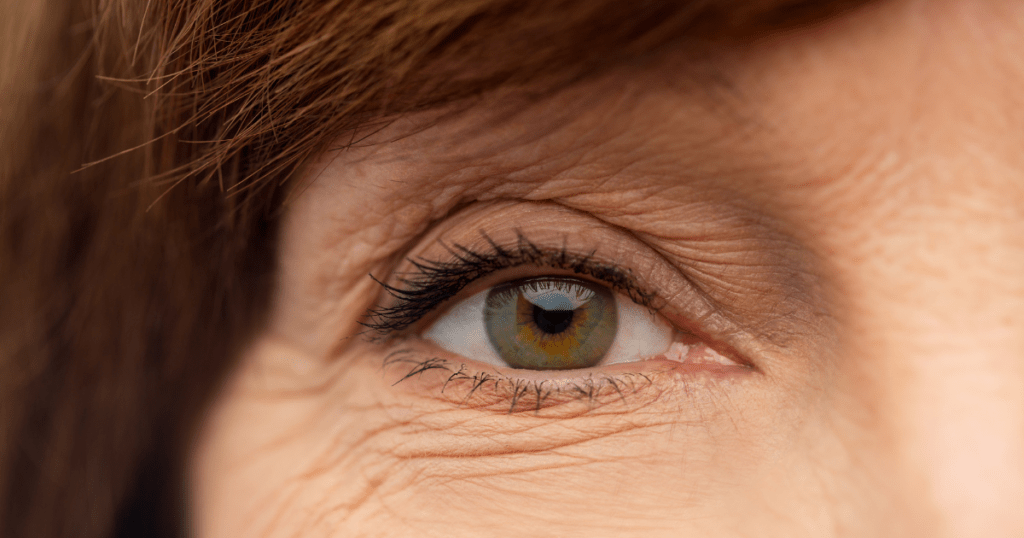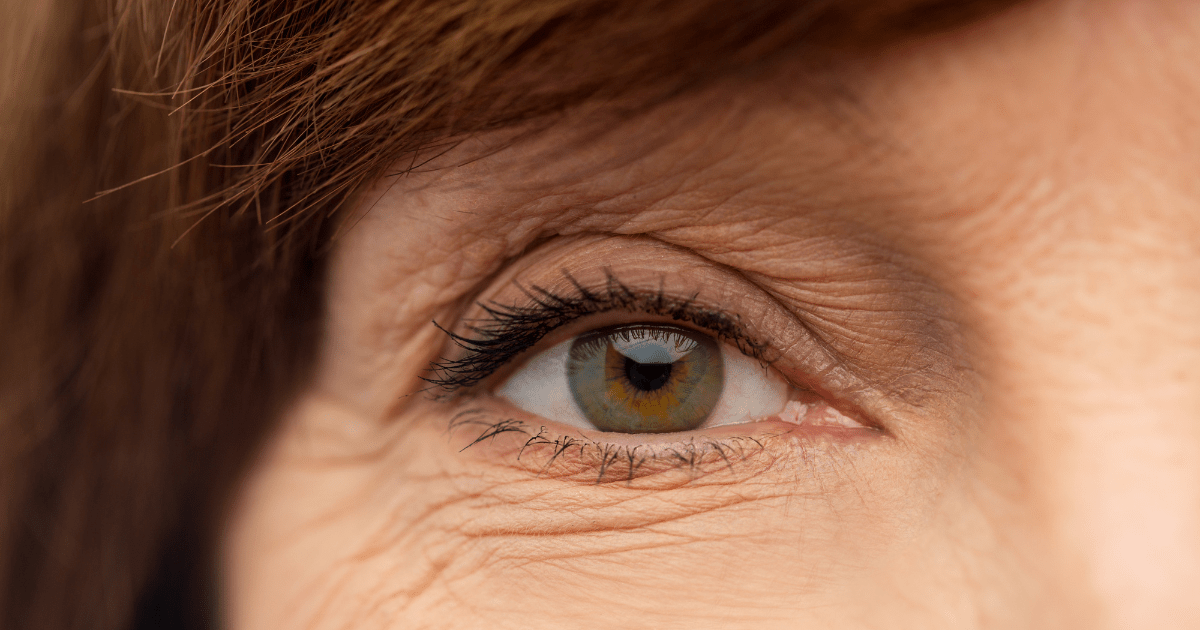Wrinkles and Skin Aging: Causes, Prevention, and Treatment
Learn the science behind wrinkles, prevention strategies, and treatment options for youthful skin.
Wrinkles, those telltale lines and creases that appear on our skin as we age, are an undeniable part of the natural aging process. They tend to be most prominent in areas exposed to the sun, such as the face, neck, hands, and forearms. In this comprehensive guide, we’ll delve into the science of wrinkles, exploring their causes, how to prevent their onset, and the various treatments available for those who wish to diminish their appearance.
What Are Wrinkles?
Wrinkles and skin aging are the visible manifestations of changes happening beneath the skin’s surface. As we age, the skin undergoes several structural alterations, including a slowdown in skin cell division and a thinning of the middle layer of the skin, known as the dermis. This dermal layer is crucial in supporting the skin’s elasticity, thanks to its network of elastin and collagen fibers.
As the network of elastin and collagen fibers begins to loosen and unravel over time, it results in depressions on the skin’s surface, causing the formation of wrinkles. Aging skin also becomes less capable of retaining moisture, secreting oil, and healing efficiently, all of which contribute to developing wrinkles.

Causes of Wrinkles:
Although wrinkles are related to aging, several other factors can accelerate their appearance. Understanding these factors is essential for adopting preventive measures and seeking suitable treatments.
1. Facial Muscle Contractions: Wrinkles on the forehead, between the eyebrows, and around the eyes (crow’s feet) often develop due to small muscle contractions resulting from habitual facial expressions. Actions like smiling, frowning, squinting, and raising eyebrows cause the skin to fold, eventually leading to wrinkles. Over time, these expressions, coupled with the effects of gravity, contribute to the formation of wrinkles.
2. Sun Damage (Photoaging): Excessive exposure to ultraviolet (UV) radiation from the sun also contributes to premature skin aging, commonly referred to as photoaging. UV light damages collagen fibers, the key structural proteins responsible for skin strength and elasticity, and prompts the production of abnormal elastin. As a result, the skin’s rebuilding process may create wrinkles, as some healthy collagen fibers can receive damage in the process.
3. Smoking: Smoking is a well-known contributor to premature aging and wrinkles. Research has revealed that smoking reduces the production of new collagen, a crucial protein for skin structure.
4. Environmental Factors: Environmental pollutants, such as particulate matter, soot, and nitrogen dioxide, can lead to the breakdown of collagen in the skin when they enter pores. Additionally, smoking and exposure to pollutants in the environment can accelerate wrinkle formation.
5. Repeated Facial Expressions: Making facial expressions, such as squinting or smiling, creates grooves beneath the skin’s surface. With the progression of age, skin becomes less elastic and contributes to wrinkles.
Prevention of Wrinkles and Skin Aging:
While wrinkles are a natural part of the aging process, several strategies can help delay their onset and minimize their appearance:
1. Sun Protection: Limiting sun exposure, especially during midday when the sun’s rays are strongest, is crucial. Wearing protective clothing like wide-brimmed hats, long-sleeved shirts, and sunglasses can provide added protection. Always apply sunscreen with an SPF of at least 30 generously, and reapply it every two hours or more frequently if swimming or perspiring.
2. Use Sunscreen-Infused Products: When selecting skincare products, opt for those containing broad-spectrum sunscreen, offering protection against both UVA and UVB rays.
3. Moisturize: Regularly moisturizing your skin is essential to prevent dryness, which can accentuate the appearance of wrinkles. Moisturizers help trap water in the skin, masking tiny lines and creases.
4. Quit Smoking: If you smoke, quitting can significantly improve your skin’s tone and texture. Smoking has a damaging impact on collagen production, accelerating the aging process.
5. Healthy Diet: While more research is needed, evidence suggests that certain vitamins and minerals in your diet may help protect your skin. Adding fruits and vegetables to a diet can contribute to skin health.
At What Age Do Wrinkles Start to Appear?
The emergence of fine lines and wrinkles can start as early as age 25, albeit typically in a subtle manner. The most common age group seeking wrinkle treatments falls between 40 and 55, as wrinkles tend to become more prominent after age 65.
Does Makeup Contribute to Wrinkles?
Leaving makeup on overnight can clog pores, hindering the skin’s ability to produce collagen proteins contributing to premature aging and wrinkles. It’s vital to remove makeup at the end of the day with a cleanser to ensure clean pores and prevent wrinkles. While occasional lapses in makeup removal may not cause significant damage, habitual neglect can harm the skin by clogging pores.
Does Caffeine Cause Wrinkles?
The relationship between caffeine, including coffee, and its impact on the skin is an ongoing area of research. Caffeine can offer short-term benefits to the skin by temporarily improving the appearance of wrinkles. However, long-term use of caffeine products is not a cure for wrinkles. Caffeine acts as an antioxidant, protecting the skin from elements that can damage collagen, a key factor in wrinkle formation.
Treatment of Wrinkles and Skin Aging:
It’s important to note that wrinkles are a natural aspect of the aging process and do not necessarily require treatment. However, for those who wish to address the appearance of wrinkles, there are various options available. Consultation with a healthcare provider or dermatologist is recommended to determine the most suitable treatment option:
1. Anti-Wrinkle Creams: These may contain retinoids or over-the-counter skincare products designed to improve hydration texture and stimulate collagen production.
2. Skin Resurfacing Techniques: Procedures like microdermabrasion (sanding away layers of skin), dermabrasion (scraping layers of skin away), and chemical peels (dissolving skin away) can help repair prematurely aging skin.
3. Laser Skin Resurfacing: This procedure is effective in reducing facial wrinkles and skin irregularities caused by sun damage or acne.
4. Botulinum Toxin Type A (Botox®) Injection Therapy: Botox® is a medication that blocks the chemical signals responsible for muscle contractions, thus reducing the appearance of wrinkles.
5. Fillers: Fillers made of hyaluronic acid can fill in or lift up folds or deep wrinkles.
6. Facelift Surgery: For more severe cases, facelift surgery can remove excess skin and fat, tightening tissue layers to provide a more youthful appearance.
Potential Side Effects of Wrinkle Treatment:
It’s essential to be aware that there can be potential side effects and complications associated with any wrinkle treatment. Before undergoing treatment, it’s advisable to discuss the possible side effects with a healthcare provider. Be sure to communicate any existing skincare routines, medications, or supplements you are taking to ensure no interactions with the chosen treatment.
Common side effects of wrinkle treatments may include:
- Allergic reactions to the treatment substance.
- Swelling.
- Scarring.
- Pain.
- Bruising.
Foods and Drinks to Help Reduce Wrinkles and Skin Aging:
The nutrients you consume play a significant role in maintaining healthy skin and preventing wrinkles. Including the following elements in your well-balanced diet can contribute to skin health and minimize wrinkles:
1. Water: Staying adequately hydrated is crucial for healthy skin. Dehydrated skin can exacerbate the appearance of fine lines and wrinkles.
2. Vitamins A and C: These vitamins are known for their potential benefits to the skin. Vitamin A can support skin health, while Vitamin C is an antioxidant, protecting the skin from damage.
3. Protein: Consuming protein-rich foods like poultry, fish, eggs, and lean meats can aid collagen production, which is essential for skin elasticity.
While specific dietary choices can support skin health, it’s equally important to avoid foods high in fat and sugar, as they can damage collagen in the skin, contributing to the formation of wrinkles.
Dry Skin and Itching:
In addition to wrinkles, many older individuals contend with the discomfort of dry skin and itching, often occurring on their lower legs, elbows, and lower arms. Several factors can contribute to dry skin, including insufficient hydration, prolonged sun exposure, dry air, smoking, stress, and the natural loss of sweat and oil glands that comes with age.
It’s essential to note that dry skin can also be associated with underlying health conditions, such as diabetes or kidney disease. Using excessive soap, antiperspirant, or perfume and taking hot baths can exacerbate dry skin, particularly in older individuals who tend to have thinner skin. Additionally, certain medications can induce skin itchiness, which can lead to scratching and, in some cases, skin bleeding.
Strategies to Address Dry Skin
To address dry, itchy skin, consider the following strategies:
- Use Moisturizers: Regularly apply moisturizers, such as lotions, creams, or ointments, to keep your skin hydrated and reduce dryness and itching.
- Adjust Bathing Habits: Avoid taking excessive showers and baths with hot water and using harsh soaps. Avoid adding bath oil to your water, as it can slippery the tub.
- Humidify Your Environment: Using a humidifier, which adds moisture to the air, can help combat the effects of dry indoor air, particularly during the colder months.
If your skin is persistently dry and itchy, especially to the point of discomfort or skin bleeding, it’s essential to consult your doctor for a proper evaluation and guidance.
In conclusion, wrinkles and skin aging, though inevitable, don’t have to define your appearance as you age. By adopting healthy lifestyle habits and protective measures, you can delay their onset and reduce their prominence. Understanding the causes of wrinkles, along with preventive strategies and treatment options, empowers you to make informed decisions about your skin health. Whether you embrace your wrinkles or seek treatments to diminish them, the key is prioritizing skin health and overall well-being.
Sources:
Clieveland Clinic. Wrinkles. (https://my.clevelandclinic.org/health/articles/10984-wrinkles). Accessed September 16, 2023
Mayo Clinic. Wrinkles (https://www.mayoclinic.org/diseases-conditions/wrinkles/symptoms-causes/syc-20354927) Accessed September 17, 2023
National Institute of Aging. Skin Care and Aging.(https://www.nia.nih.gov/health/skin-care-and-aging). Accessed September 15, 2023
Also read:
Understanding Nummular Eczema: Causes, Symptoms, and Triggers
Demystifying Acne: Causes, Types, and Triggers
Sunburn Prevention Tips: Protecting Your Skin from Harmful UV Rays
Category
- Health Issues (72)
- Healthy Diet (48)
- Herbs for Health (11)
- Mental Health (33)
- Skin Care (20)

